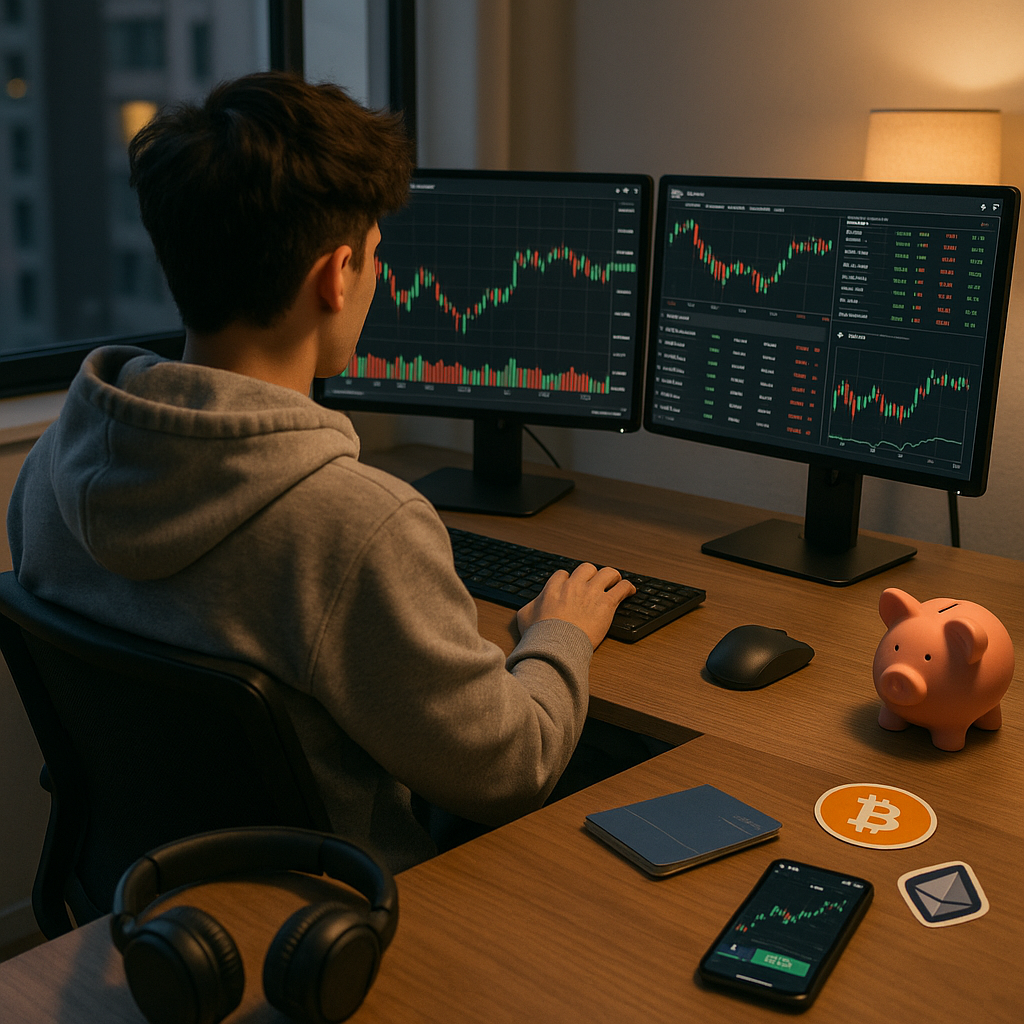Over the past few years, a noticeable shift has taken place in how younger generations approach money. Instead of following traditional saving habits, many are exploring more active methods — with Gen Z trading emerging as one of the most prominent trends.
1. Why Gen Z Trading Feels Faster Than Traditional Saving?
Let’s face it: a standard savings account in most countries offers 2%–5% annual interest, often lower than inflation. That means your money is technically losing value over time.
Gen Z grew up watching:
- Rapid inflation
- Sky-high housing prices
- Bank collapses
- Crypto millionaires
Saving money in a bank feels like doing nothing. And in today’s volatile economy, doing nothing feels risky.
2- How Social Media Affects Gen Z Trading Habits?
On TikTok, Instagram Reels, and YouTube Shorts, personal finance isn’t boring — it’s trending.
Creators are breaking down:
- Forex strategy tutorials
- “$100 to $1,000” trading challenges
- Live breakdowns of market setups
- Side hustle + investing hybrids
Gen Z isn’t just watching. They’re acting. A 2024 survey by GOBankingRates found that over 50% of Gen Z prefer investing or trading over traditional saving — a figure that rises every year.
3- Distrust in Banks = Do It Yourself Mindset
After the 2008 crisis — and more recently, bank failures in the US and Europe — younger generations are less trusting of financial institutions.
They’ve seen:
- Bank fees eat away at balances
- Currency devaluation in real time
- Delays in accessing their own funds
Trading, on the other hand, offers transparency, control, and instant execution. Gen Z wants to own their money experience, not outsource it.
4- Trading Feels Empowering — and Teachable
Trading — whether in forex, stocks, or crypto — has become increasingly accessible due to online platforms, mobile apps, and widespread financial content on social media.
Reasons Gen Z may gravitate toward trading include:
- Greater perceived control over their money
- Higher potential returns, though with higher risk
- Faster access to markets, information, and execution
- Influence from peer communities and online financial influencers
Trading also aligns with a more active approach to finance, where participants frequently monitor, manage, and adjust their positions based on real-time data.
5- They Don’t Want to Wait Until They’re 60
Traditional financial planning says:
“Save now, retire rich at 65.”
Gen Z says:
“No thanks.”
This generation values freedom, flexibility, and experiences. The idea of waiting 30+ years to enjoy life doesn’t sit well. So they’re using trading — even small-scale — to speed up the wealth-building process.
6- Final Thought: It’s Not Reckless — It’s Evolved
Yes, trading involves risk. But so does inflation. So does doing nothing.
Gen Z isn’t ignoring risk — they’re managing it differently. They want control, growth, and speed. And they’re willing to learn the skills that let them build it.
So the next time someone says “just save your money,” don’t be surprised if a Gen Z investor responds:
“I’d rather trade it — and watch it work.”





Leave A Comment